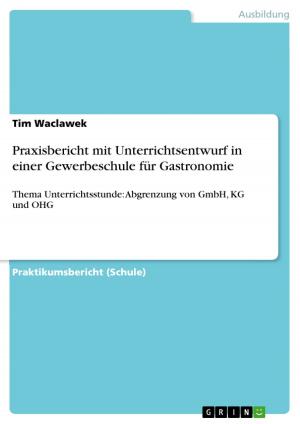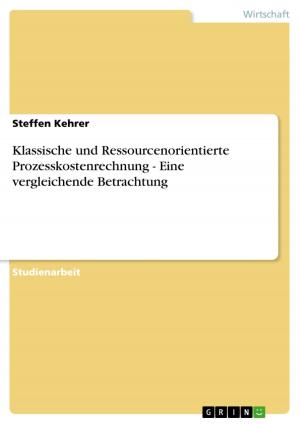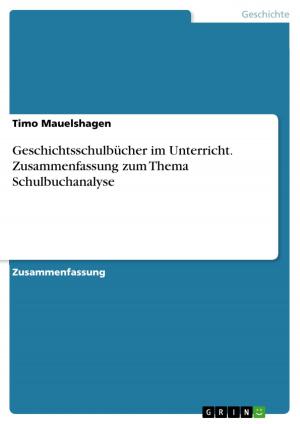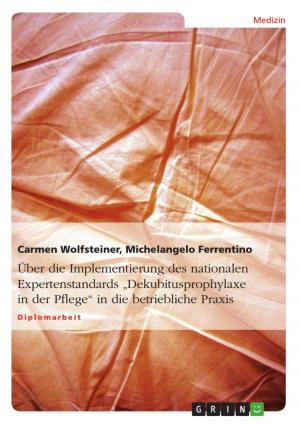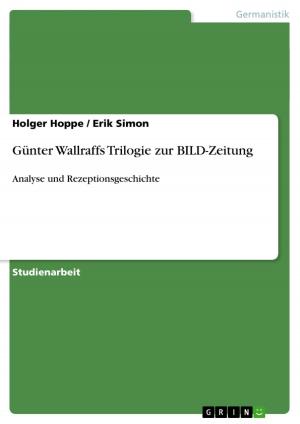Multimodellierung des Interkulturellen Managements. Für die Ausbildung und die Praxis
Business & Finance, Management & Leadership, Management| Author: | Gebhard Deissler | ISBN: | 9783656122135 |
| Publisher: | GRIN Verlag | Publication: | February 7, 2012 |
| Imprint: | GRIN Verlag | Language: | German |
| Author: | Gebhard Deissler |
| ISBN: | 9783656122135 |
| Publisher: | GRIN Verlag |
| Publication: | February 7, 2012 |
| Imprint: | GRIN Verlag |
| Language: | German |
Fachbuch aus dem Jahr 2012 im Fachbereich BWL - Unternehmensführung, Management, Organisation, , Veranstaltung: interkulturelles Management, Sprache: Deutsch, Abstract: Diese Studie systematisert das interkulturelle Management in der Gestalt von einprägsamen und effektiven Modellen. The TP (Transcultural Profiler) is a model of consciousness. It consists of an intercultural and a transcultural space of consciousness. The intercultural is subordinated and integrated by the transcultural space of consciousness based on the neurophysiologic principle of functional subordination and structural integration and the hypothesis of its psychological analogy. As the mental cultural software is contained in the intercultural space, it is also integrated by the naturally integrative transcultural space. The transition from the divisive intercultural space of culture consciousness to the integrative transcultural space of culture transcending consciousness occurs at the advanced stages of Level D 5 Evolution (phylogenetic and cultural development). The mental cultural and the metamental culture transcending spaces are complementary aspects. Thus, a more holistic perception of the human being has a naturally integrative impact on cultural diversity. The DOME or TP Model, as well the Tau and the Cross Models as well as the insinuated Tao Model of Culture and its management dealt with in this study contain what I have termed the metaphorical cultural complementarity principle. And the awareness of the hypothetical metaphorical cultural complementarity principle and the ensuing stance the intercultural manager adopts within the space as a whole can have an impact on the cultural environment. It has important implications on human understanding of culture and its management. It entails a pioneering approach to new horizons of culture research and intercultural management and it provides the basis for a true transcultural, all-integrative cultural hypothesis, man seems to be naturally endowed with and which the wisdom inherent in man has provided since times immemorial. And at present its time seems to be coming.
Fachbuch aus dem Jahr 2012 im Fachbereich BWL - Unternehmensführung, Management, Organisation, , Veranstaltung: interkulturelles Management, Sprache: Deutsch, Abstract: Diese Studie systematisert das interkulturelle Management in der Gestalt von einprägsamen und effektiven Modellen. The TP (Transcultural Profiler) is a model of consciousness. It consists of an intercultural and a transcultural space of consciousness. The intercultural is subordinated and integrated by the transcultural space of consciousness based on the neurophysiologic principle of functional subordination and structural integration and the hypothesis of its psychological analogy. As the mental cultural software is contained in the intercultural space, it is also integrated by the naturally integrative transcultural space. The transition from the divisive intercultural space of culture consciousness to the integrative transcultural space of culture transcending consciousness occurs at the advanced stages of Level D 5 Evolution (phylogenetic and cultural development). The mental cultural and the metamental culture transcending spaces are complementary aspects. Thus, a more holistic perception of the human being has a naturally integrative impact on cultural diversity. The DOME or TP Model, as well the Tau and the Cross Models as well as the insinuated Tao Model of Culture and its management dealt with in this study contain what I have termed the metaphorical cultural complementarity principle. And the awareness of the hypothetical metaphorical cultural complementarity principle and the ensuing stance the intercultural manager adopts within the space as a whole can have an impact on the cultural environment. It has important implications on human understanding of culture and its management. It entails a pioneering approach to new horizons of culture research and intercultural management and it provides the basis for a true transcultural, all-integrative cultural hypothesis, man seems to be naturally endowed with and which the wisdom inherent in man has provided since times immemorial. And at present its time seems to be coming.

